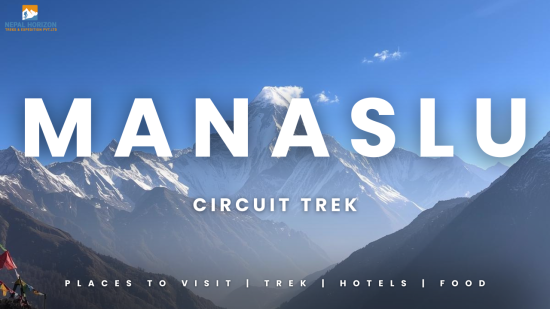Everest Base Camp for Beginners: 7 Essential Tips That You Should Know
24th June 2024

The Everest Base Camp Trek is not just a hike; it's a powerful journey that leaves a lasting impression on your adventurous spirit. This exciting trip takes you to the heart of the Himalayas, where Mount Everest (8,848 meters), the highest peak in the world, shows off its beauty and charm.
Unlike other hikes, the Everest Base Camp Trek is the grandest of them all. This deep exploration includes walking through varied landscapes, from sub-tropical forests to alpine meadows. You'll see some of the world's tallest peaks, explore the rich wildlife of Sagarmatha National Park, and experience the genuine Sherpa communities that are essential to mountaineering.
Having hiked this route more than five times, I can promise you that this adventure will be a lifelong memory. Being in the magical atmosphere of the Himalayas feels extraordinary and is hard to describe. If you're planning to take on this famous Himalayan route for your next adventure, here are a few tips for beginners doing the Everest Base Camp Trek.
These beginner tips for the Everest Base Camp Trek are based on first-hand experience. We will also talk about the standard trekking route, the best time to do this trek, and how difficult this Himalayan adventure is overall.
Selecting the Right Package
In my opinion, the most important tip for beginners planning an Everest Base Camp trek is to choose the right package. Let's be honest: you've probably heard different opinions from travelers who visited the same place. What do you think causes these different experiences? It's the type of package they chose.
Your overall experience depends on the package you select and the perks it includes. Beginners who opt for rushed, cheap packages often have to turn back or suffer from altitude sickness.
As a beginner trekker, focus on the pace of the journey and how much rest you will get along the route. Prioritize the experience over cost; it’s better to wait and save for a more fulfilling trek than to compromise your health.
A 12-day Everest Base Camp Trek with Helicopter Return offers the perfect itinerary for exploring the foothills of the world's tallest peak without worrying about the physical toll and overall experience.
Don't Skip the Training
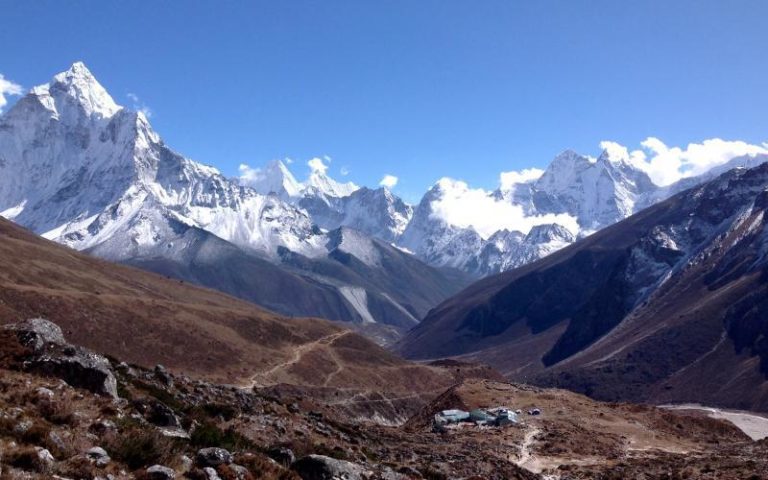
During the Everest Base Camp trek, I've noticed two types of people. The first group enjoys the experience, staying positive and living in the moment. The second group struggles to keep up, dragging themselves from one point to another without truly enjoying the journey.
My advice is to avoid being in the second group. This trek is a once-in-a-lifetime experience meant for making memories, not just pushing yourself forward. To be in the first group, don’t neglect your training.
You don’t need to be in peak physical condition for this trek, but having a basic level of fitness and adequate preparation will ensure a memorable experience. Strength and stamina training make a big difference. If you’re a beginner without much high-altitude trekking experience, training is essential.
A typical training period for high-altitude Himalayan treks is 3 to 6 weeks, but you can adjust it as needed. Consult professional trainers or trek guides to create an effective training program.
Trek Steadily and Listen to Your Body
Trekking steadily is another crucial tip for beginners on the Everest Base Camp trek. You will follow the daily itinerary and adhere to specific schedules, but one major mistake I’ve seen beginners make is worrying too much about their pace.
Many beginners feel they are slowing the group down or affecting the itinerary. Relax; you are not holding anyone back. Trekking packages in Nepal are designed for a slow and enjoyable pace.
This trek isn’t a race, and there’s no medal for reaching each point first. Rushing to high altitudes before your body adapts increases the risk of altitude sickness. So, relax, trek slowly, take short breaks, and enjoy the stunning scenery. If you notice any symptoms of altitude sickness, consult your guide immediately.
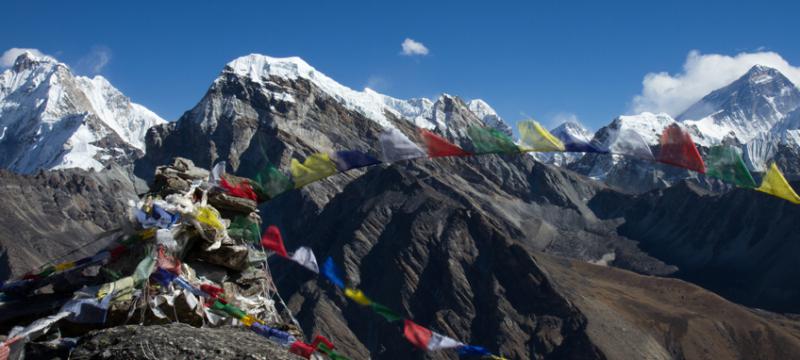
Hydration, Nutrition, and Acclimatization
If you’re wondering what key factors will influence your enjoyment of the Everest Base Camp trek, they are hydration, nutrition, and acclimatization.
Hydration: During long hours of trekking, you lose a significant amount of water. To stay balanced, prevent altitude sickness, and move comfortably, drink at least 3 to 4 liters of water per day.
Acclimatization: This is crucial for preventing altitude sickness on high-altitude adventures. The more rest you get, the more time your body has to adjust to higher altitudes, making the trek more comfortable and less physically taxing.
Nutrition: Proper nutrition is vital for your well-being during the trek. Beginners should be aware that loss of appetite is common at higher altitudes. Instead of relying on packaged foods or just eating for taste, focus on balanced, nutritious meals. Experts suggest that if you’re not feeling hungry, forcing yourself to take a few bites will help your body gradually accept food. Fuel yourself with healthy, nutrient-rich meals, as your energy levels depend on it. Avoid fat-rich dishes during long treks, as they can hinder your performance (speaking from experience).
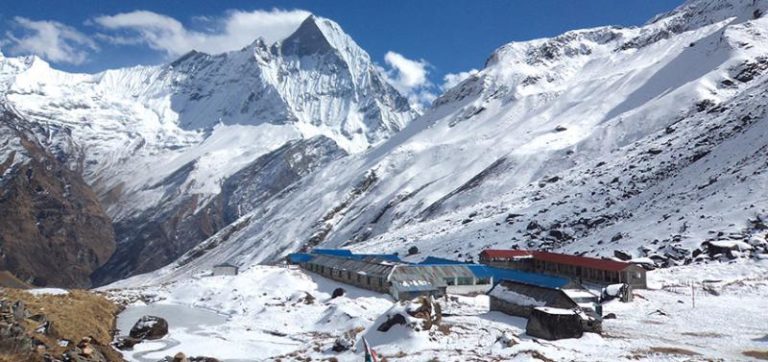
Bring Snacks and Energy Bars
When trekking to Everest Base Camp in April, one essential tip for beginners is to pack your favorite snacks, energy bars, and drinks. Relying on teahouses along the route has two main drawbacks.
First, due to their remote locations, teahouses may not have your preferred snacks, chocolate bars, or drinks. Second, items are more expensive on the mountain because transportation in the Everest region is limited. The higher you go, the more basic commodities cost.
To avoid these issues, buy your favorite snacks in the city, where you can also take advantage of bulk discounts. Don’t forget to pack some electrolytes—they are lifesavers when your energy is low.
Consider Going Vegetarian

What types of food are available on the Everest Base Camp trek?
If you haven't trekked in the Himalayas before, you might not know how goods are transported to remote high altitudes. It takes a long time to transfer goods from the cities to the top of the mountains.
Since there are no viable road transport options in the Everest region, it takes several days for supplies to reach the teahouses along the trekking route. This is why trekkers often avoid meat, especially chicken, at higher altitudes, as it is frozen for several days.
While you don't need to go vegetarian for the entire trek, it's wise to avoid chicken at higher altitudes. You can still enjoy fresh meat on the lower trails or opt for alternatives like Yak steaks or locally sourced chicken curry. If you're unsure about the freshness of the meat, it's best to avoid it altogether. You don't want to risk your health on this once-in-a-lifetime adventure.
Include Contingency Days in Your Everest Base Camp Trek
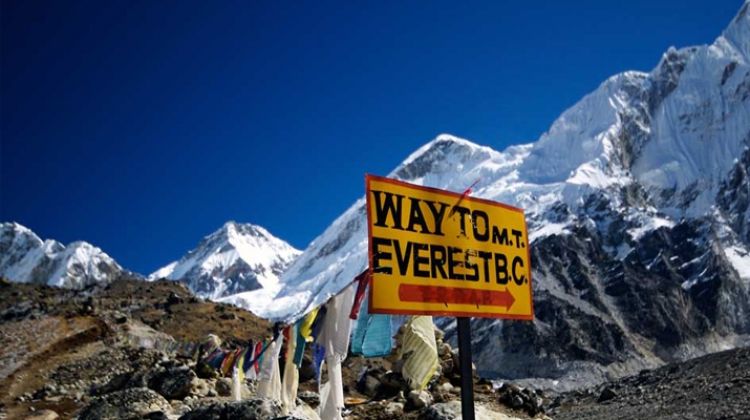
When trekking to Everest Base Camp in May, it's important to be prepared for potential changes in your plans. Factors like weather, trail conditions, and health issues can affect your schedule. To accommodate these uncertainties, it's wise to have a few extra days in your itinerary.
Acclimatization is crucial, especially if it's your first time trekking at high altitudes. Having extra days allows you to take your time and not push your body too hard. These additional days give you flexibility, so you won't feel rushed.
If you don't need the contingency days during your trek, you can use them later to explore popular tourist destinations in the country.
Temperature of Everest Region in Different Seasons
- In spring (March to May), the temperature in the Everest region is usually between 17°C and 25°C.
- In autumn (September to November), it ranges from 12°C to 17°C.
- During the monsoon season (June to August), the temperature is between 17°C and 30°C.
- In winter (December to February), it ranges from 5°C to 15°C.
You may also consider:
Everest Base Camp Trek 16 Days
Note: The success rate of the Everest Base Camp Trek with Nepal Horizon Trek is between 96% and 98%. We provide fully guided trekking packages, ensuring a safe and memorable journey that you will always remember.
Recent From Blogs
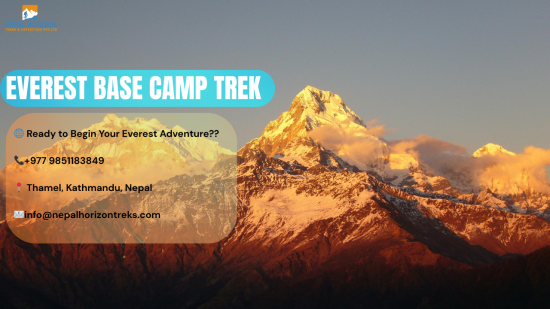
28th October 2025
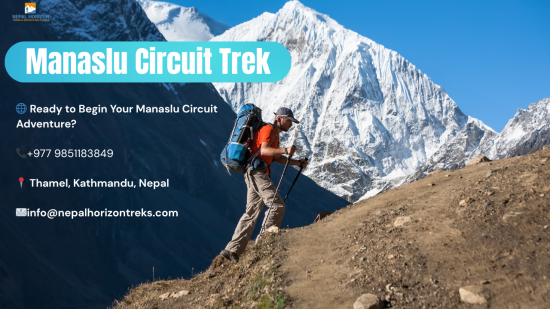
25th October 2025
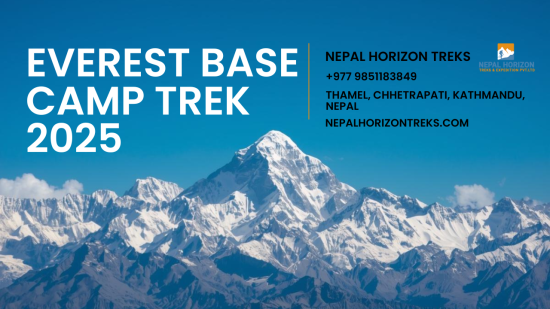
24th October 2025
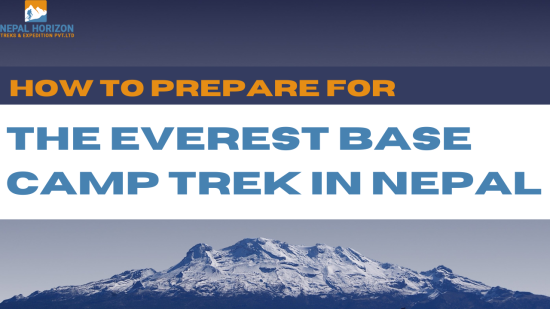
18th October 2025
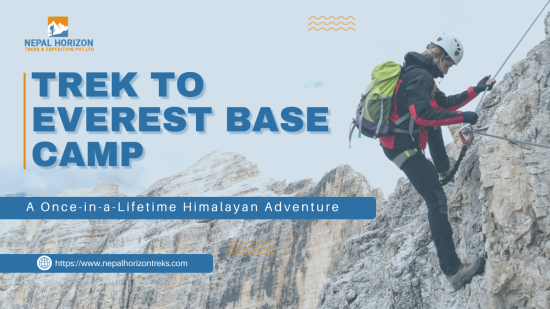
14th October 2025
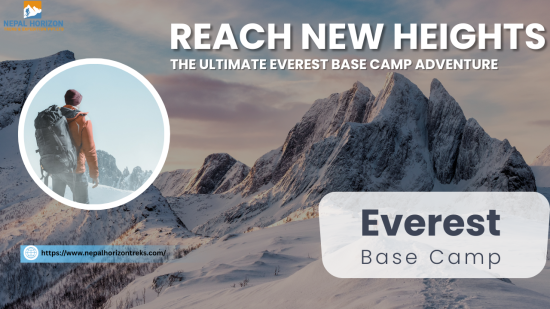
12th October 2025
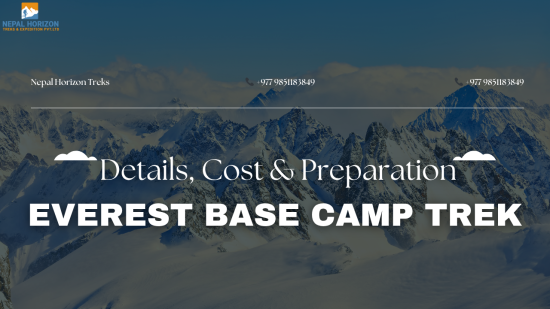
10th October 2025

7th October 2025


